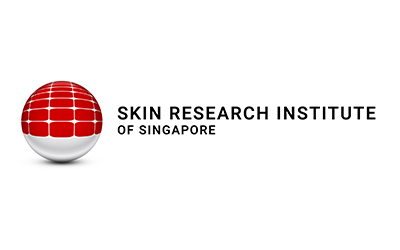Skin Infection & Immunity
Human skin forms the first line of defence to protect the body from infection. The skin is constantly in contact with infectious agents such as fungi, bacteria, viruses, and parasites. It is colonised by a diverse microbiota that serves as an additional barrier against pathogen invasion. These complex interactions among the skin microbiota, epithelial cells, and cells of the immune system maintain normal host immune homeostasis.
Understanding the mechanisms by which components of the skin microenvironment contribute to the control and/or establishment of an infection and how local immune responses can modulate systemic responses against various pathogens is critical to the development of effective intervention strategies.
.jpg?sfvrsn=73d64d3b_0)
Our approach
Skin Infection & Immunity is one of SRIS 's flagship research programmes. It is a tripartite collaboration primarily driven by NTU's LKC Medicine and our partners A* STAR and NHG. This translational interdisciplinary research brings together research and clinical experts in atopic dermatitis, pigmentary disorders, acne and chronic wounds.
The Skin Infection & Immunity programme focuses on elucidating the key mechanisms that control the immune response in skin infections. We focus on elucidating the mechanisms of immune surveillance and host-pathogen interactions and their relationship to the adaptive immune response. Our research aims to understand the drivers of skin infections and diseases in the broader context of host genetics, immune or barrier defects, the microbiome, and the environment, and to use this knowledge to develop innovative and interventional approaches to treat the target disease.
ACNE
Human acne vulgaris (acne) is a widespread, highly prevalent and significant public health problem. It affects > 90% of the world's population, making it the most common skin disease. This inflammatory phenotype is thought to be triggered and maintained by Cutibacterium acnes. Our research objectives aim to address the need for better treatment of acne and acne-prone skin. We strive to discover the mechanisms that lead to acne progression and develop cellular models that can be used for drug screening. We are exploring rare genetic disorders that cause acne, as these will allow us to elucidate the specific molecular mechanisms involved in disease development. As the frequent use of antibiotics in treatment contributes to the development of resistance, the need for alternative antibiotics becomes more urgent. Therefore, we are also investigating the potential of lysins as a promising alternative to antibiotics, as they are less susceptible to resistance and can selectively and rapidly kill bacteria
.jpg?sfvrsn=5159f47b_0)
ELUCIDATING IMMUNE SENSORS
The human innate immune system uses a variety of sensor proteins to detect microbial infections and initiate the immune response. These proteins are crucial to the normal functioning of the immune system, yet the entire repertoire of their cognate triggers is not fully understood. We aim to elucidate the mechanisms by which the immune system forms a protective barrier to the extracellular environment, thereby preventing the invasion of external microorganisms and UV damage to exposed surfaces of human skin. Our goal is also to identify the cognate pathogen-derived signals that can activate the multitude of sensor proteins and to evaluate the mechanisms by which these proteins regulate the innate immune response. We have identified a network of genes that are regulated in response to UV damage. These immune-associated genes are potential targets for further drug discovery and development.
.jpg?sfvrsn=9d853967_0)
IMMUNE-MODULATING MATERIALS
Healing of acute and chronic skin wounds is a complicated process; therefore, a deep understanding of skin immunity is critical to the development of therapeutics for wound recovery. Our strategy is to create multiple infection/inflammation models to study skin wounds. We have successfully established several laboratory models to study dermal wounds and tissue repair, including the infection/inflammation model for porcine burn wounds. We have used these models to further investigate the potential application of immunomodulatory biomaterials. Our research has led to multicentred collaborations to develop innovative treatments. Our models have been instrumental in testing novel functional biomaterials such as peptides and polymers for fine-tuning skin immunity, promoting effective wound healing, and fabrication of novel anti-infective polymers into nanofiber dressings to combat superficial skin infections.
cd6aacd42e5e457c90d8efddda5cdc0a.jpg?sfvrsn=c34e9a2_0)
Contact us
For more information on the SKIN INFECTION AND IMMUNITY PROGRAMME, please contact Professor Maurice van Steensel, Asst Prof Franklin Zhong Lei and Asst Prof Navin Kumar Verma
A*STAR celebrates International Women's Day

From groundbreaking discoveries to cutting-edge research, our researchers are empowering the next generation of female science, technology, engineering and mathematics (STEM) leaders.
Get inspired by our #WomeninSTEM
